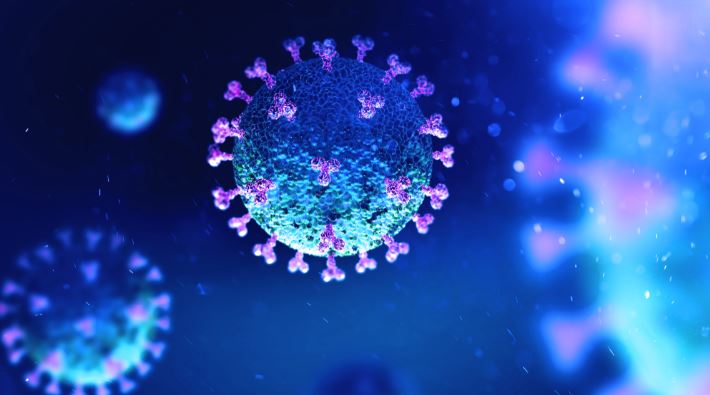New research reveals how Omicron variant escapes immune response
7 July 2022
Research from HDR UK reveals fundamental changes to the spike protein in the Omicron variant that are likely to be important in its rapid global spread

Omicron is a variant of concern in the COVID-19 pandemic and its sub-variants have dominated world-wide since November 2021. Research published today from Health Data Research UK (HDR UK) identifies changes to Omicron that are responsible for its rapid global spread.
Researchers, based at the MRC-University of Glasgow Centre for Virus Research, found multiple mutations in the spike protein of the Omicron variant – the protein which the UK’s vaccine programme is based on.
Laboratory tests showed Omicron is largely unaffected by the antibodies provided by two doses of COVID-19 vaccine, but responses are improved by a third dose booster.
Importantly, this was confirmed by analysis of real-world infection data. Researchers looked at data including vaccination status and PCR test results from over 1.2 million people, as well as COVID-19 DNA sequencing data from COG-UK, to confirm Omicron can escape immunity from two vaccine doses, but three doses restore a good level of protection.
The work also provides evidence that Omicron has switched its route of entry in to human cells. The authors say this fundamental biological shift is likely to influence Omicron spread and the types of cells it can hijack, as well as the severity of disease. But, the researchers say, this requires further evaluation in population-based studies.
The research was funded by HDR UK, and is part of the Data and Connectivity National Core Study, led by Health Data Research UK in partnership with the Office for National Statistics and funded by UK Research and Innovation. The work was also supported by The Alan Turing Institute.
As part of the Data and Connectivity National Core Study, which was established in October 2020 to connect pandemic-related UK health data and accelerate research on COVID-19, researchers can request access to these anonymous and public datasets on UK SARS-CoV-2 viral genomic data, available via the Health Data Research Innovation Gateway.



